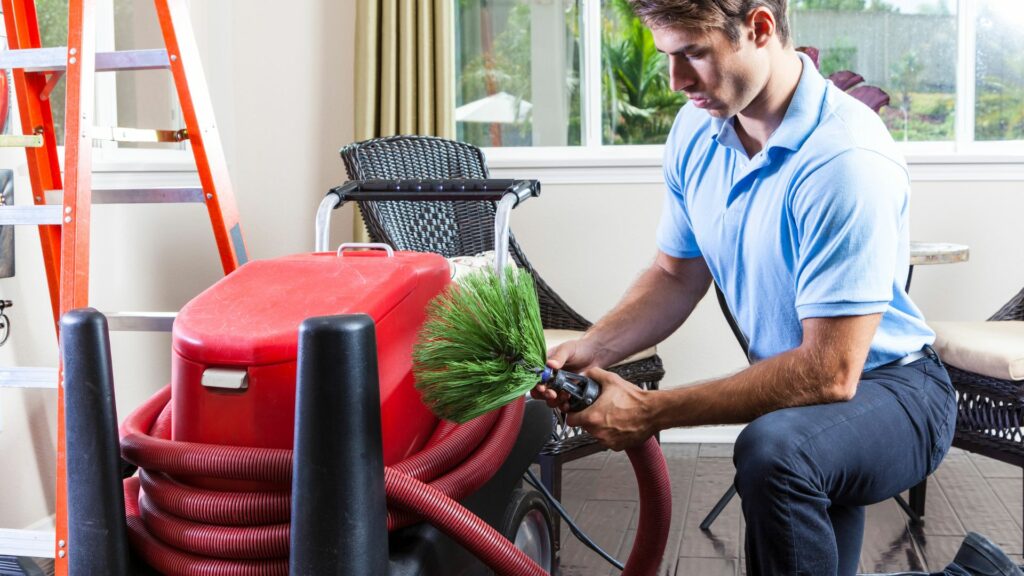Have you ever asked yourself, why is my HVAC system so loud? You are not alone. Many homeowners and business owners find themselves puzzled by the unexpected noises emanating from their heating, ventilation, and air conditioning systems. This guide will help you understand the reasons behind these sounds and provide some actionable solutions to keep your space quieter and more comfortable.

Understanding the Basics of HVAC Systems
An HVAC system is essential for maintaining indoor comfort. It regulates temperature and provides better air quality. However, these systems can sometimes become noisy, leading to discomfort and a sense of disturbance.
Components of an HVAC System
Before diving into why an HVAC system might be loud, it is crucial to understand its components:
- Compressor: Often located outside, it can be a frequent source of noise.
- Fans: Essential for heat exchange but can become noisy due to wear and tear.
- Ductwork: Can vibrate and create noise if not properly secured.
- Blower: Pushes the conditioned air through the ducts and can be a source of sound.
Common Reasons for a Loud HVAC System
Loose or Damaged Components
One of the primary reasons your HVAC system might be noisy could be loose or damaged components. Over time, parts can become loose due to vibration and regular use. Regular maintenance can help identify and rectify these issues before they become significant problems.
Ductwork Issues
Problems in the ductwork can also cause noise. If ducts are not sealed properly, they can create whistling or rattling sounds. Learn how to seal HVAC system can help mitigate these noises and improve system efficiency.
Fan and Blower Motor Problems
The fan and blower motor can become noisy due to bearing issues or mechanical wear. Regular lubrication and cleaning can help minimize these sounds. For in-depth cleaning, commercial duct cleaning might be necessary for business setups.
When Should You Be Concerned?
Identifying Unusual Noises
Not all noises signify major issues, but it’s essential to identify and understand them:
- Banging: Could indicate something is loose or broken inside the compressor.
- Clicking: Might be a sign of a failing thermostat or electrical components.
- Screaming: Could be a refrigerant leak, which is dangerous and requires immediate attention.
Regular Maintenance is Key
Engaging in regular maintenance tasks such as residential duct cleaning can help you avoid many common noise problems. Routine inspections will help you catch issues before they escalate into expensive repairs.
DIY Solutions to Quiet Your HVAC System
Check and Tighten Loose Components
A simple screwdriver can go a long way. Regularly check for and tighten any loose screws or bolts in your HVAC unit. Also, ensure that the panels are securely fastened.
Seal the Ducts
Use mastic sealant or metal tape to seal any visible gaps in the ductwork. This helps not only with noise reduction but also with system efficiency. Discover more tips on how to seal HVAC system.
Install a Sound Blanket
A sound blanket can be wrapped around the compressor to dampen the noise. These blankets are designed to reduce the decibel levels of your HVAC system without affecting its efficiency.
Professional Solutions
Consult an HVAC Technician
If you’ve tried these DIY solutions and your HVAC system is still loud, it might be time to call a professional. A qualified HVAC technician can perform a comprehensive diagnostic to identify the root cause of the noise.
Annual Maintenance Contracts
Many service providers offer annual maintenance contracts. These contracts include regular check-ups, cleaning, and repairs, ensuring that your HVAC system operates at its optimal level while minimizing noise.
Innovations in Quiet HVAC Technology
Variable Speed Motors
New HVAC units come with variable speed motors that adjust their speed to meet the specific heating or cooling requirements of your space. This technology is not only energy-efficient but also significantly quieter.
Sound-Dampening Features
Modern HVAC systems are equipped with sound-dampening features such as insulated panels and specially designed fan blades that reduce operational noise.
Maintenance Tips to Keep Your System Quiet
Regularly change air filters, clean condenser coils, and check refrigerant levels. If you neglect these simple tasks, your system will work harder, leading to increased noise levels.
Useful External Resources
< p>For more detailed information on HVAC systems, you can check this guide on heating and cooling system basics.
p>For more detailed information on HVAC systems, you can check this guide on heating and cooling system basics.
FAQs
- Q: Why does my HVAC system make a banging noise?
A: Banging noises often indicate loose or broken components within the compressor. - Q: Can I fix a noisy HVAC system myself?
A: Simple fixes like tightening screws and sealing ducts can be done DIY, but persistent issues should be examined by a professional. - Q: How often should I schedule maintenance for my HVAC system?
A: It’s recommended to have your HVAC system serviced at least once a year for optimal performance and noise reduction.